Subtotal: $47.00
Next Level Executive Function Strategies – NICOLE QUINT (Audio CD)
$219.00 $65.00
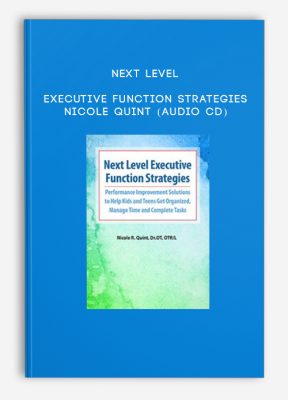
Next Level Executive Function Strategies – NICOLE QUINT (Audio CD)
Sale Page
Get Next Level Executive Function Strategies – NICOLE QUINT (Audio CD) on Salaedu.com
Description:
Watch this experiential program and learn evidence-based cognitive, physical and environmental strategies to help kids and teens take their Executive Function (EF) skills to the next level!
Easily integrated into any classroom, clinic, or home, these strategies promote self-regulation to allow students to attend and recall what they are learning, and then to be able to expand into higher level executive functions throughout the day. Most importantly, you will learn how to use goal attainment scaling to take your performance building strategies to build habits and routines—the key to independence and success!
You will learn proven skill-building and power driver interventions that are quick, individualized, and easy to use! Leave the day being able to implement:
- A model of impulse control, working memory and flexible thinking as a lens for quick EF assessment and intervention
- Classroom-friendly strategies to address sensory arousal and attention to build selfregulation
- Performance focused interventions to promote organization, time management, and task completion
- Brain-based techniques to increase mental shifting, enhance memory, and rev up learning
- Strategies for sensory processing, arousal states, mindfulness and sleep to enhance recall, and increase retention of information
- Techniques to increase self-awareness, self-monitoring and problem-solving skills
- Environmental strategies to create an optimal learning landscape
This program will teach you a collaborative method of skill to performance building approaches, as well as adaptive and compensatory strategies as a “1-2 punch” to help kids and teens be proactive, socially and academically successful, with an end goal of independence! Your competence will translate to their confidence! PURCHASE NOW!
Outline:
The “Big 3” of Executive Function (EF): Impulse Control, Working Memory and Flexible Thinking
- Developmental processes to guide assessment and intervention
- Dysfunction patterns in ADHD, ASD, SPD, LD and mental health
- Impact on behaviors, reading/writing performance, and self-regulation
- Primitive brain vs. logical brain and their influence
- Trauma and risk factors
Create Neuro Connections to Optimize EF Development
- Arousal states and opening the “window of opportunity for learning”
- Vision and learning: Consequences for attention and EF
- Seating postures and relationship to attention and self-regulation
- Sleep and influence on learning, self-regulation, memory and attention
Assessment: From Essential Observations to Standardized Tools
- Easy to use process checklist to get to the core of EF needs
- Connecting the “Big 3” to attention and learning space
- Quick sleep tools to identify needs to maximize EF
- Identify the 3As and how they fluctuate throughout the day
- Video Case example: School-aged child with ADHD and SPD
Skill-Building Strategies That Get Big Results!
- Classroom-friendly strategies to address sensory arousal
- Self-talk process to promote metacognition, planning and self-management
- Mnemonics, chunking and storytelling to enhance recall and retention of information
- Systems-based approaches that help children manage materials
- Quick tips for implementing elements of martial arts, physical activity and yoga
- Video case examples: Effectively implement skill building strategies
Power Driver Interventions That Take Performance to the Next Level!
- Mindfulness: Metacognition in practice to WORK that memory techniques fail
- Self-regulation strategies with the “POWER! Batteries”
- The magic dust for building habits and routines
- Fun games to for time management and organization skills
- Brain hacks to increase mental shifting, enhance memory, and rev up learning
- Use activity analysis of evidence-based approaches to encourage EF development
Connecting the Dots to Create the Optimal Learning Landscape
- Adaptive seating to promote learning and selfregulation
- Sleep strategies to share with parents
- Positive reinforcement and systems thinking to promote organized habits
- Utilize daily observation charts and goal attainment scaling to meet goals
- 504 and IEP accommodation design strategies
- Video Case Examples: Implementing adaptation strategies
NLP online course
So what is NLP?
NLP stands for Neuro-Linguistic Programming. Neuro refers to your neurology;
Linguistic refers to language; programming refers to how that neural language functions.
In other words, learning NLP is like learning the language of your own mind!
NLP is the study of excellent communication–both with yourself, and with others.
It was developed by modeling excellent communicators and therapists who got results with their clients.
NLP is a set of tools and techniques, but it is so much more than that.
It is an attitude and a methodology of knowing how to achieve your goals and get results.
More Course: NLP – HYPNOSIS – PHILOSOPHY
Outstanding Course:Life Upgrade Coaching Certification
1 review for Next Level Executive Function Strategies – NICOLE QUINT (Audio CD)
Add a review Cancel reply
Related products
HYPNOSIS - NLP Courses
HYPNOSIS - NLP Courses
HYPNOSIS - NLP Courses
HYPNOSIS - NLP Courses
Christina Hall – The Paradoxical Nature of Change – Video Book
HYPNOSIS - NLP Courses

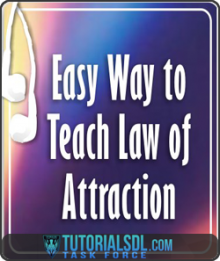 Easy Way to Teach Law of Attraction from Michael Losier
Easy Way to Teach Law of Attraction from Michael Losier 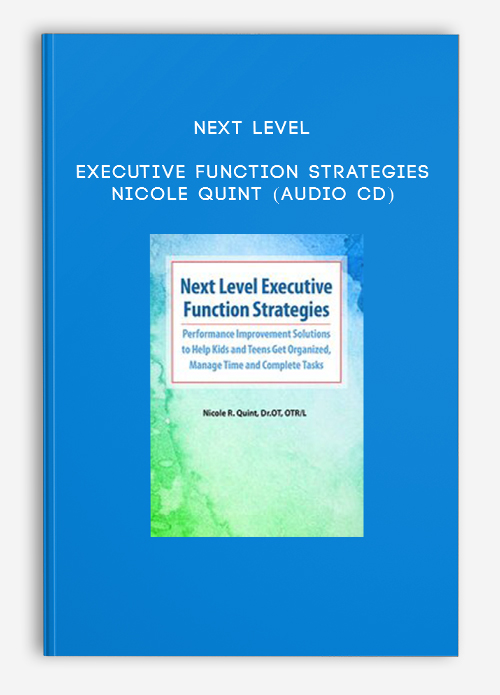
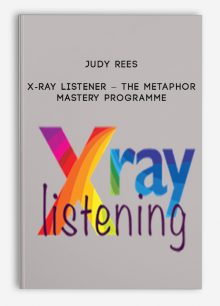

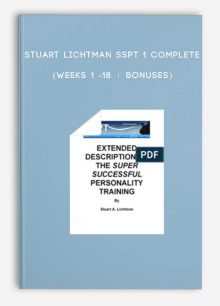
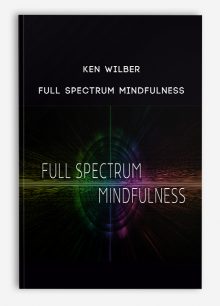


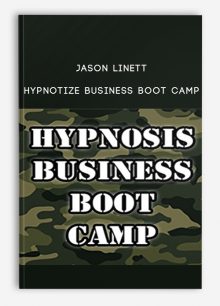
king –
We encourage you to check Content Proof carefully before paying.
“Excepted” these contents: “Online coaching, Software, Facebook group, Skype and Email support from Author.”
If you have enough money and feel good. We encourage you to buy this product from the original Author to get full other “Excepted” contents from them.
Thank you!